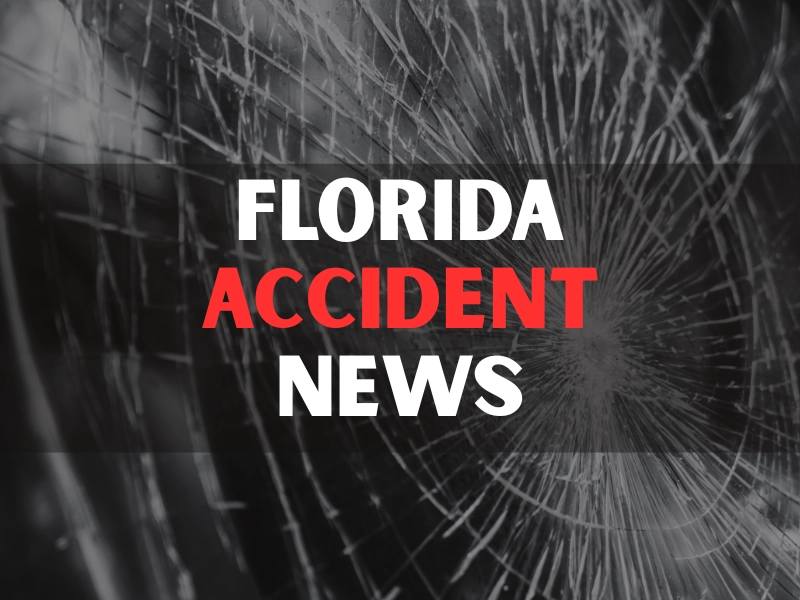Clearwater, FL — Glass Hazard on Royal Caribbean Cruise: Who’s Responsible?
11Jun
Clearwater, FL (June 11th, 2025) – Passengers aboard Royal Caribbean’s Symphony of the Seas experienced a dangerous event recently. A towering pane of floor-to-ceiling glass unexpectedly shattered as the ship approached Cape Canaveral.

While no one was injured, video footage captured the moment glass rained down on the pool deck below, barely missing occupied lounge chairs. A crew member quickly cleared the area moments before the glass fell — a decision widely credited with preventing serious injury. For Florida residents, particularly those in Clearwater who frequently travel out of Port Canaveral, the incident raises pressing questions about safety standards and cruise line liability.
Table of Contents
Why This Matters for Clearwater Cruise Travelers
Port Canaveral is one of the busiest cruise ports in the U.S. and a popular embarkation point for Clearwater-area vacationers. The Symphony of the Seas, one of the world’s largest passenger vessels, carries thousands of guests at any given time. An event like this not only draws concern for passenger safety but also points to possible lapses in maintenance or inspection protocols. The falling glass could have easily resulted in catastrophic injury had the area not been cleared in time.
A crew member acted quickly to remove individuals from the danger zone. Royal Caribbean later made repairs, and the voyage continued as scheduled. Still, questions remain about how such a structural failure occurred, and whether it could have been prevented.
Understanding Premises Liability on Cruise Ships
When you board a cruise ship, you’re not just a guest. You’re a legal entrant with rights that cruise operators are obligated to respect. Just like hotels, resorts, or shopping centers, cruise ships are subject to premises liability laws.
However, cruise ships are unique environments. Unlike land-based properties, they operate under a blend of maritime law, federal regulations, and international safety standards. These overlapping rules create additional layers of responsibility and can affect how liability is determined when something goes wrong.
The Duty of Care Owed to Passengers
Under general premises liability law, property owners, including commercial operators like Royal Caribbean, owe a duty of care to those lawfully on their premises. To this end, property owners must take precautions, including ensuring that fixtures like windows, railings, and structural elements are properly installed and maintained. On cruise ships, this duty is heightened by maritime law, which obligates the shipowner to provide passengers with a vessel that is seaworthy.
Seaworthiness doesn’t just mean a ship that floats. It means the vessel must be safe for its intended use. That includes glass enclosures that don’t unexpectedly shatter, exposing passengers to the risk of serious injury or death. Cruise ships are also expected to conduct routine inspections and identify materials that may be defective or deteriorating.
How Cruise Contracts and Maritime Law Apply
Most passengers don’t realize it, but buying a cruise ticket is more than just booking a vacation. It’s entering into a binding legal contract. The terms and conditions printed on the back of a cruise ticket, or buried in the booking confirmation, are enforceable in court. Cruise passenger ticket contracts often limit where, when, and how you can file a personal injury claim if you’re hurt onboard.
For example, Royal Caribbean’s ticket contracts often require that any lawsuit be filed in federal court in Miami. As such, regardless of where the incident occurred or where you live, your case may have to be brought in South Florida.
In addition to venue restrictions, these contracts also set tight deadlines. For instance, some cruise ticket contracts require injured passengers to notify the cruise line in writing within six months of the incident and file a lawsuit within one year. Miss either of those deadlines, and your case could be dismissed, even if it’s clear the cruise line was at fault.
Legal Issues Raised by the Royal Caribbean Glass Incident
When structural elements like a glass panel fail on a cruise ship, multiple legal concerns come into play. Even in cases where no one is injured, as with the Symphony of the Seas incident, the circumstances can expose serious shortcomings in how the ship was built, maintained, or monitored.
Questions of Installation and Maintenance
One of the core legal questions in incidents involving falling or broken glass is whether the material was properly installed and maintained. If the glass panel had structural defects, was past its service life, or had previously shown signs of wear, Royal Caribbean could be found negligent for failing to address the risk. Cruise ships undergo regular maintenance, and if internal records show that crew members overlooked warning signs, liability becomes more likely.
Another possible concern is the method of installation. If the glass was installed incorrectly, for example, without the proper framing, anchoring, or sealants, then either the cruise line or the third-party installer could be held responsible. Glass used in high-traffic public areas must meet strict standards, particularly when it’s overhead or adjacent to lounging spaces.
Lack of Warnings or Safety Measures
Passengers were not warned in advance about any risk related to the glass, which suggests the issue may have been sudden or previously unreported. While the swift action of a crew member likely prevented injuries, the incident raises questions about whether appropriate inspection routines were in place and whether evacuation protocols are regularly practiced.
In some cases, passengers have alleged that cruise lines failed to secure hazardous areas quickly enough after discovering a defect. Had the glass shattered during peak usage or if the crew member had not acted in time, multiple injuries, or even fatalities, could have resulted.
Emotional Distress and Near Misses
Although no one was physically hurt, passengers who witnessed the incident may still have suffered psychological effects, including shock or anxiety about remaining on the ship. In Florida, passengers may be able to recover damages for emotional distress under certain conditions, particularly if they were in the zone of danger. Witnessing a near-fatal event, even without direct injury, can have lasting effects, especially on children and individuals with pre-existing anxiety disorders.
In a widely circulated video, a passenger documented the incident as a loud crack reverberated through the upper deck. The glass then shattered and fell to a lower level, where moments earlier passengers had been lounging.
Injured on a Cruise Ship? Light & Wyatt Law Group Can Help
The shattering glass aboard Royal Caribbean’s Symphony of the Seas could have ended in tragedy. Thanks to the quick actions of a crew member, it didn’t. However, the event exposes a broader issue of cruise ship safety, one that concerns any Clearwater resident considering a trip out of Port Canaveral.
If you or someone you know was affected by falling debris, unsafe conditions, or any other potentially negligent conduct aboard a cruise ship, speak with our Clearwater personal injury lawyers at Light & Wyatt Law Group. Legal guidance can help you pursue rightful compensation and push for greater accountability in the cruise industry. Contact our law group today at 727-499-9900 for a free initial consultation.
